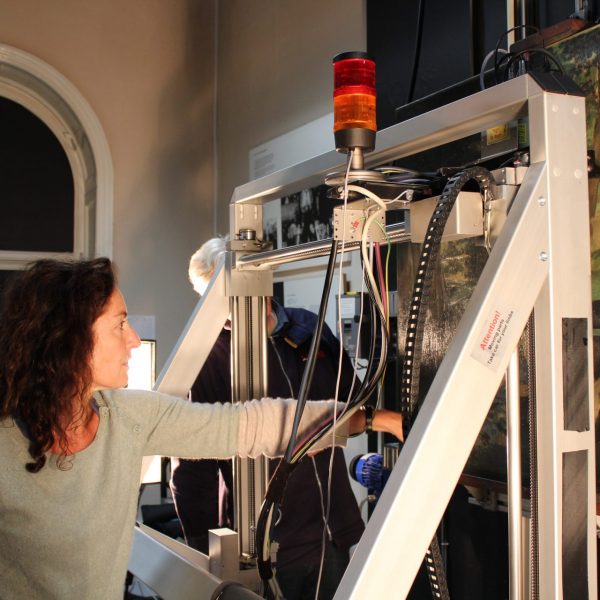The Courtauld has been awarded two grants totaling more than £2.2 million from the Arts & Humanities Research Council Capabilities for Collections Fund (CapCo) to upgrade critical art conservation instruments and support the infrastructure development essential to further care of The Courtauld’s world-class collections, as part of its transformative Courtauld Connects project.
The substantial grants from the Arts & Humanities Research Council will be used to support five key areas: Upgrading and refitting The Courtauld’s collection stores in Somerset House
- Creating technology-enabled study spaces for artworks, including a new Prints and Drawings Study Room, Technical Examination area and an Object Study Room
- Mechanical improvements to better care for and examine works of art
- New instruments to generate analytical data, molecular and elemental maps of works of art and unique paint samples – informing conservation research and practice for easel and wall paintings worldwide
- Vital equipment upgrades to better support The Courtauld’s world-renowned art conservation research
The Courtauld’s Department of Conservation is one of the very few specialist centres for the training and research in fine art conservation and technical art, and dates back to the mid-1930s. It currently offers a Postgraduate Diploma in the Conservation of Easel Paintings, MA Conservation of Wall Painting, and a PhD programme, as well as undertaking advanced academic research and conservation treatments. In addition to specialist work on the collections displayed in The Courtauld Gallery, recent Courtauld conservation projects include sites in China, India and Bhutan, as well as collaborations with national bodies including the National Trust and English Heritage, the National Gallery, National Portrait Gallery, and Tate.
Professor Deborah Swallow, Märit Rausing Director at The Courtauld said: “We are incredibly grateful to the Arts & Humanities Research Council for their generous support. These grants will enable our internationally respected Department of Conservation to make best use of technology and new spaces to push forward the boundaries of art conservation research and preserve fragile artworks for future generations. Most importantly, we will use the awards to help make that knowledge accessible to more people, from academics, curators and students, to the wider public.”
The CapCo funding is part of a wider project to provide UK researchers with advanced equipment, facilities and technology, and cement the UK’s position as a world-leading research and innovation superpower.
Professor Christopher Smith, Executive Chair of the Arts & Humanities Research Council said: “The Arts & Humanities Research Council are proud to support the Capability for Collections (CapCo) Fund as a landmark investment in our galleries, libraries, archives, museums and special collections.
“Our Collections organisations form the backbone of our heritage economy and act as a vital resource and source of inspiration for many diverse researchers. They are important drivers of innovation and maintaining and supporting them helps to create a healthier, more resilient society.
“The Arts & Humanities Research Council recognises that investment in maintaining and improving research and development facilities will offer vital support and help to carry these organisations into a more sustainable and innovative future.”
The new grants will complement the first phase of the ambitious Courtauld Connects capital project, scheduled to complete in late 2021. Alongside the transformation of The Courtauld Gallery, which is set to reopen in late 2021, this has also included the complete refurbishment of the Department of Conservation’s Somerset House teaching facilities, including greatly increasing their accessibility, which has been made possible thanks to a significant gift from The Linbury Trust. Courtauld Connects is supported by The National Lottery Heritage Fund and generous donations from foundations, individuals and other supporters.
